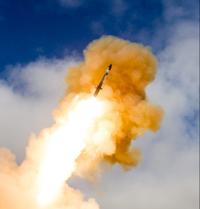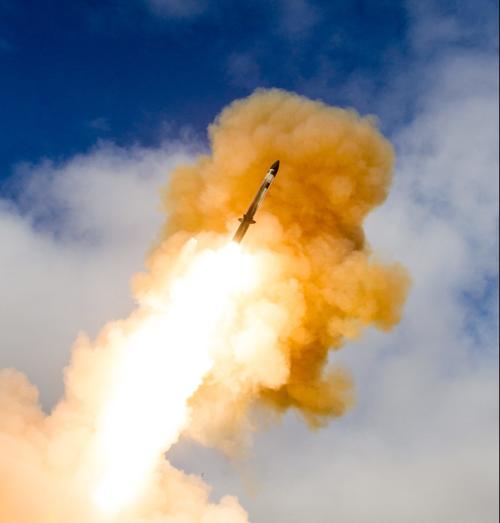The test-flight failure in January of a ballistic-missile interceptor made by Tucson-based Raytheon Missile Systems was most likely caused by a component designed to ignite an upper-stage rocket motor, the U.S. Missile Defense Agency said Tuesday.
During the Jan. 31 test, an SM-3 Block IIA missile launched from a ground-based launcher at the Pacific Missile Range Facility in Hawaii failed to intercept an air-launched, intermediate-range ballistic missile target.
A failure review board found that a component known as a “hybrid arm and fire device” failed to ignite the interceptor’s third-stage rocket motor, preventing the missile’s hit-to-kill warhead from completing its final flight leg to the target, Missile Defense Agency Director Lt. Gen. Samuel Greaves said through a spokesman.
Based on the review board’s findings, the MDA and the Japanese Ministry of Defense are taking corrective actions including removing and replacing the firing devices on the missiles’ third- and second-stage rocket motors, Greaves said.
The test was the first time the SM-3 Block IIA — co-developed with Japan — was launched from the Aegis Ashore ground-based system, and the first time both ground- and space-based sensors were used to remotely cue the successful launch of the interceptor.
The MDA plans to test the SM-3 Block IIA, now in limited test production, again before the end of the year ahead of a planned intercept flight against an intercontinental ballistic missile target by the end of 2020, Greaves told a Senate committee in April.
At the time, Greaves expressed confidence that the January intercept failure was caused by a single component failure, rather than a design flaw.
A ship-launched SM-3 Block IIA intercepted a medium-range ballistic missile target during a test in February 2017. A similar missile missed an intercept in June 2017, and it was later determined that a sailor erroneously caused the missile to self-destruct.
In late September, the missile-defense agency posted a pre-solicitation notice that it plans to award Raytheon a sole-source, five-year contract for production and delivery of an unspecified number of SM-3 Block IIA missiles beginning in fiscal 2019, contingent on the agency issuing an initial production decision for the program.





